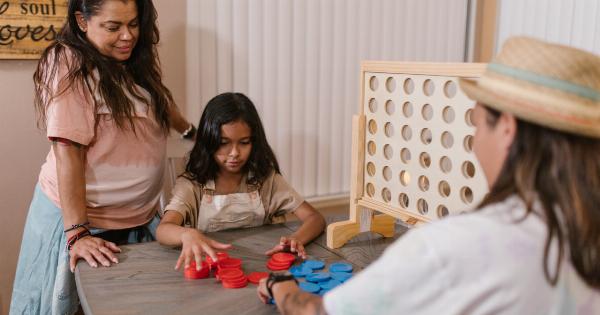Relationships are a complex interplay of emotions, values, and expectations. While every relationship is unique, there are certain signs that indicate a strong and healthy bond between two individuals.
Being able to recognize these signs can help you cultivate a more meaningful and satisfying connection with your partner. Here are some of the key indicators that your relationship is on solid ground:.
1. Communication
Effective communication lies at the heart of every healthy relationship. Partners who communicate well are able to discuss their feelings, express their needs and desires, and resolve conflicts in a constructive manner.
They listen to each other, offer support and empathy, and never shy away from difficult conversations. Communication is a two-way street, and both partners should feel comfortable expressing themselves honestly and openly.
2. Trust
Trust is the foundation of any good relationship. Trust means that you rely on your partner to keep their commitments, and that they trust you to do the same.
It means that you have faith in each other’s intentions and believe that you have each other’s best interests at heart. Trust takes time to build, and it requires consistent effort to maintain. When partners trust each other, they feel secure and connected, and are better equipped to handle challenges that come their way.
3. Empathy
The ability to understand and share your partner’s feelings is a crucial component of any healthy relationship. Empathy means being able to put yourself in your partner’s shoes and see things from their perspective.
It means being able to recognize and validate their emotions, even when you don’t necessarily agree with them. Empathy helps you connect on a deep level with your partner, and fosters a sense of mutual understanding and intimacy.
4. Respect
Respect is an essential ingredient toward building a strong and healthy relationship. Partners who respect each other treat each other with kindness and consideration, and value each other’s opinions and feelings.
Respect means that you honor your partner’s boundaries, refrain from belittling or criticizing them, and treat them with dignity and kindness. When both partners feel respected, they are more likely to feel appreciated and valued, and their relationship is more likely to thrive.
5. Shared Values
Strong relationships are built on a foundation of shared values and beliefs. Partners who share similar interests and priorities tend to have a greater sense of harmony and connection.
Whether it’s religious beliefs, political views, or a shared passion for a particular hobby, having common ground can help build a stronger bond between partners.
6. Intimacy
Intimacy is an essential component of any healthy relationship. It means being able to connect on a physical, emotional, and spiritual level with your partner.
Intimacy involves affection, tenderness, and sexual connection, but it also encompasses a sense of closeness and vulnerability. Partners who are intimate feel accepted, loved, and valued by each other, which helps to deepen the sense of connection and commitment in the relationship.
7. Conflict Resolution
No relationship is perfect, and disagreements and conflicts are bound to arise from time to time. However, the way in which partners handle those conflicts can play a major role in determining the health and strength of their relationship.
Healthy relationships involve constructive conflict resolution, where partners listen to each other, avoid blame, and look for solutions that work for both parties. They do not resort to personal attacks, gaslighting or stonewalling each other, but instead practice active listening and respect each other’s views.
8. Emotional Support
A healthy relationship involves providing emotional support for each other through all of life’s ups and downs. When partners feel sad, stressed, or overwhelmed, they turn to each other for comfort and reassurance.
Emotional support involves active listening, offering feedback, and encouraging each other through difficult times. Partners who can rely on each other for emotional support feel more secure, loved, and valued in the relationship.
9. Independence
While it’s important to feel connected to your partner, healthy relationships also involve maintaining a sense of independence.
Partners who have their own hobbies, interests, and social networks are able to support each other’s growth and development, rather than feeling stifled or controlled. Independence means maintaining your own identity and interests, while still prioritizing your relationship and your partner’s needs. Healthy relationships require a balance between connection and individuality.
10. Forgiveness
Finally, forgiveness is a crucial component of any healthy relationship. Partners who are able to forgive each other for mistakes, miscommunications, and hurt feelings can create a stronger and more resilient bond.
Forgiveness means letting go of resentment and anger, and offering compassion and understanding instead. Partners who can forgive each other feel more connected and committed to the relationship, and are better able to withstand the challenges that come their way.
Conclusion
A strong and healthy relationship involves a complex interplay of communication, trust, empathy, respect, shared values, intimacy, conflict resolution, emotional support, independence, and forgiveness.
When partners are able to cultivate these key elements in their relationship, they are more likely to feel connected, committed, and fulfilled in their partnership.































